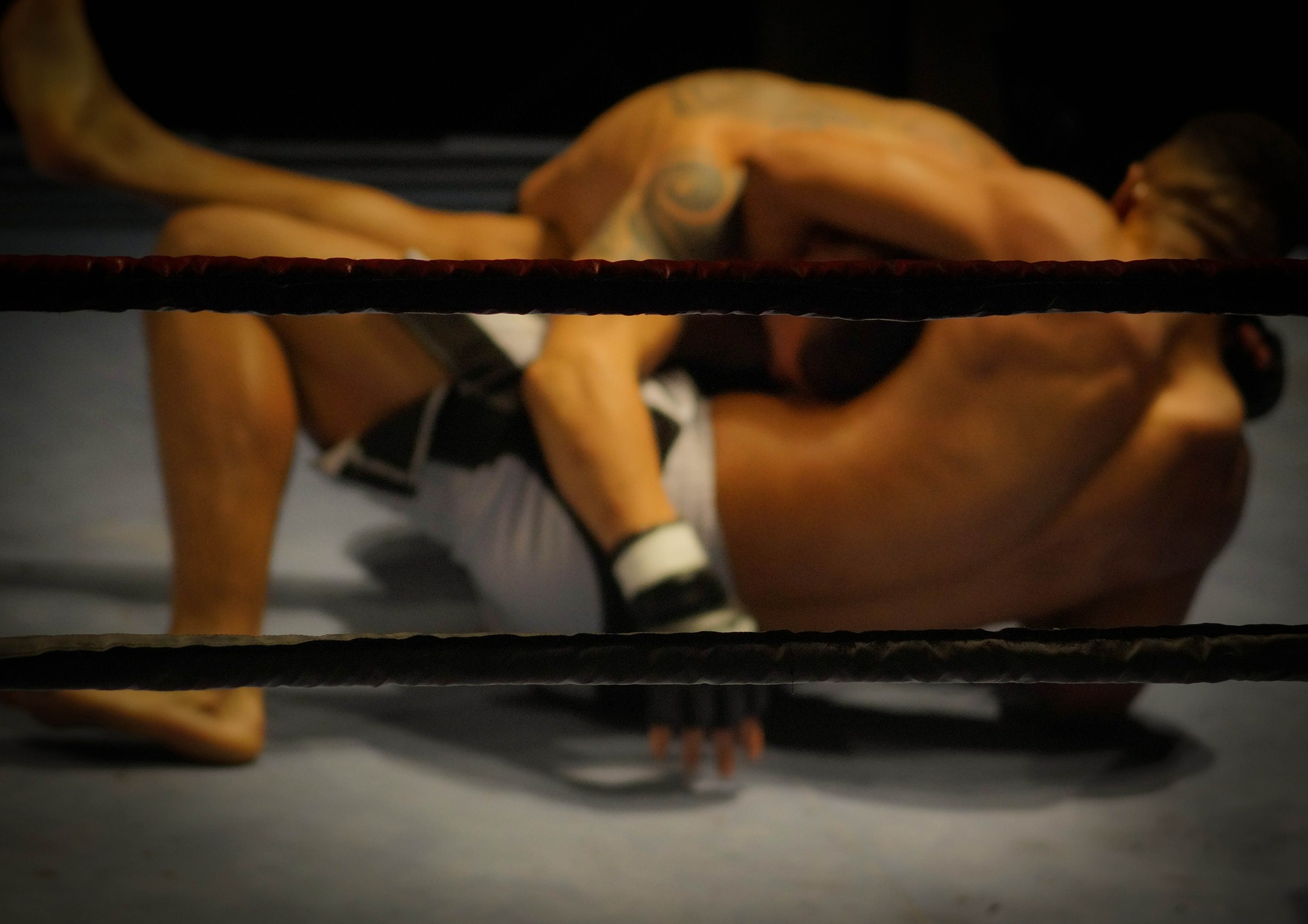If you are facing choking charges, you need a criminal defence lawyer in Toronto to look at your case as soon as possible.
Choking is intentionally restricting someone’s breathing. It is illegal to choke, suffocate, or strangle another person.
There are two offences in the Canadian Criminal Code that involve choking. The more serious of the two is “Overcoming resistance to commission of offence”. This offence is designed to punish anyone who tries to choke, strangle, or suffocate someone in an attempt to commit another crime. People charged with this offence are also commonly charged with other offences, such as sexual assault, theft, and robbery.
The second offence is a form of assault causing bodily harm, which involves choking.
Assault by choking is classified as an indictable offence, which means it’s considered more serious under Canadian law. If convicted of this, a person faces a maximum penalty of 10 years in prison.
Strategic Criminal Defence is a top Google-rated criminal defence firm in Toronto, with over 500 5-star reviews. Our firm, and our experienced legal team, have defended clients in over 10,000 criminal cases. Leveraging our extensive network of lawyers and decades of experience, we craft defence strategies to help those accused of choking beat the charge.
The lawyers at Strategic Criminal Defence are both highly experienced and dedicated to defending your rights and future in the face of these charges. Contact a Toronto choking lawyer today by calling (647) 986-8077.
Key Takeaways
- Choking is a serious criminal offence under Section 267(c) of the Canadian Criminal Code.
- It is always prosecuted as an indictable offence.
- A conviction can result in up to 10 years in prison.
- Bail conditions for choking charges are typically strict and may include no contact with the alleged victim, restrictions on where you can go, regular check-ins with police or bail supervisors and house arrest or curfews.
- Despite the severity, choking charges can be successfully defended with proper legal representation.
- Defences may include self-defence, lack of intent, or challenging the evidence and witness testimony.
How can a choking lawyer in Toronto help
Before charges are formally laid, we can offer precharge legal advice, helping you understand the potential consequences and your legal options.
As we start preparing your defence by examining police actions and the evidence against you, there are certain defence strategies that can be used to aid your cause, including:
- Assembling documents, photographs, texts, etc. that contradict the allegation and support your defence;
- Gathering evidence from witnesses that support your version of events;
- Identifying mistakes in the actions of the police, such as Charter breaches;
- Uncovering administrative/systemic errors, such as “Jordan delay,” non-disclosure, lost or destroyed evidence, etc.; and
- Finding weaknesses or “holes” in the Crown’s case that may make it difficult or impossible for them to establish the elements of the offence.
A Strategic Criminal Defence lawyer can also protect you from self-incrimination by ensuring you don’t make statements that could unnecessarily harm your case. When necessary, our lawyers can retain expert witnesses such as medical professionals who can testify about injuries or their absence.

Choking Charges in the Criminal Code of Canada
According to section 267 of the Criminal Code:
Assault with a weapon or causing bodily harm
Every person is guilty of an indictable offence and liable to imprisonment for a term of not exceeding ten years or an offence punishable on summary conviction who, in committing an assault,
(a) carries, uses or threatens to use a weapon or an imitation thereof,
(b) causes bodily harm to the complainant, or
(c) chokes, suffocates or strangles the complainant
Examples of Choking Charges
Here are some situations that could lead to a choking charge in Toronto:
- During an argument in a local pub, one patron grabs the other by the throat and squeezes it, restricting their breathing for several seconds before letting go.
- At a hockey game, two fans get into a fight, and one puts the other in a headlock, cutting off their air supply until security intervene and separate them.
- During a home invasion, a thief grabs the home owner and applies pressure to the neck to subdue them.
Consequences of a Choking Charge
Being charged with choking in Canada comes with serious legal consequences that can affect your life for years to come.
A choking charge under Section 267(c) of the Criminal Code is classified as an indictable offence. Unlike some other crimes, it is not a hybrid offence, which means the Crown cannot choose to proceed summarily with less severe penalties.
When it comes to jail sentences, there is no mandatory minimum sentence for choking. However, the maximum penalty is quite severe, up to 10 years in prison. The actual sentence depends on many factors, including the circumstances of the incident, the harm caused to the victim, and whether the accused has a previous criminal record (see criminal sentencing in Toronto).
Courts may also impose financial penalties, such as victim surcharges or restitution payments to the victim for expenses like counselling or medical costs.
In addition to the penalties above, a conviction for choking can have wide-ranging negative consequences on your future:
- It may affect your reputation in your community or with social groups;
- Potential employers may refuse or terminate your employment if their business involves vulnerable sectors such as children or the elderly;
- Your friends, family and peers may view you as unworthy of their trust;
- You may have civil, immigration, or child custody consequences; and
- You may have difficulties traveling abroad, including to the United States.
Even if the evidence is stacked against you, it may be possible to negotiate a resolution to avoid a lengthy jail sentence. Our lawyers may be able to convince the Crown to let you plead guilty to a lesser offence for a lower sentence.
Choking Charge Defences
When facing a choking charge in Toronto, there are several legal defences that may help your case. Our lawyers can assist in determining which strategies might work best for your specific situation.
Here are some common defences that could be used to fight a choking charge:
- Self-defence: You are in self-defence mode when you think you need to protect yourself from someone else’s threats or force. If someone was actively attacking you and you briefly stopped their breathing, this defence might work for choking charges. Canadian law says you have the right to defend yourself with reasonable force.
- Lack of Intent: To be charged with choking, you have to show that you meant to stop someone from breathing. This defence says that any contact with another person’s neck or throat was not on purpose.
- Disagreement about what happened: Sometimes a choking charge comes from a misunderstanding of what happened. This defence questions the victim’s story about what really happened.
- Identity: If the crime wasn’t caught on camera or the footage is bad, you might be able to use an identity defence. For instance, the authorities might have wrongly identified you as the person who did it because the footage quality was so poor. To successfully raise this defence, you might require corroborative evidence, such as an alibi regarding your whereabouts at the time of the offence.
Choking Charge Investigation
In Toronto, an investigation into a choking claim usually starts with police report. The police will go to the scene, ask the supposed victim and any other witnesses to thoroughly document what happened. They’ll ask questions about how the choking occurred, how long it lasted, and what sensations the victim experienced. Police also photograph any visible injuries like neck bruising, red marks, or scratches.
A police investigation could include talking to all the witnesses, looking at any video, taking pictures of the scene, getting medical records, and gathering any other evidence that is important.
After the police charge someone, they send the Crown Prosecutor a “disclosure package” with all the evidence they found. You can look at this disclosure package to see the proof that is against you.
Bail Conditions for Choking Charges
When someone is charged with choking, they may be released on bail but will be placed under conditions.
This could include conditions to refrain from:
- Contacting or communicating with any alleged victim or witness,
- Visiting the home or place of work of any alleged victim or witness,
- Staying out beyond a certain time (i.e. curfew),
- Breaking any laws,
- Using drugs or alcohol,
- Possessing weapons,
- Leaving your house (i.e. house arrest), and/or
- Travelling.
For choking charges that happened in a domestic context, the accused may be required to find another place to live if they shared a home with the alleged victim.
The court often imposes restrictions on alcohol and drug use because these substances can be linked to violent behavior. Regular reporting to a bail supervisor or police station may be required to ensure the accused is following the conditions and remains in the area.
Violating any of these bail conditions is a separate criminal offence that can result in being held in custody. The court takes these conditions seriously and will revoke bail if they are not followed.








